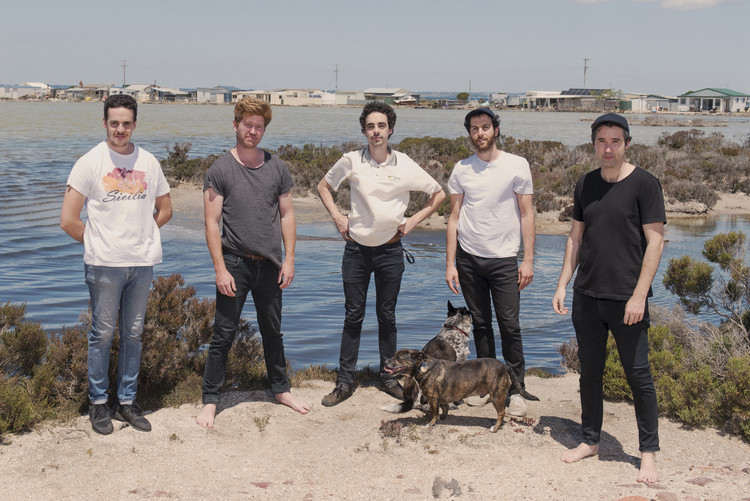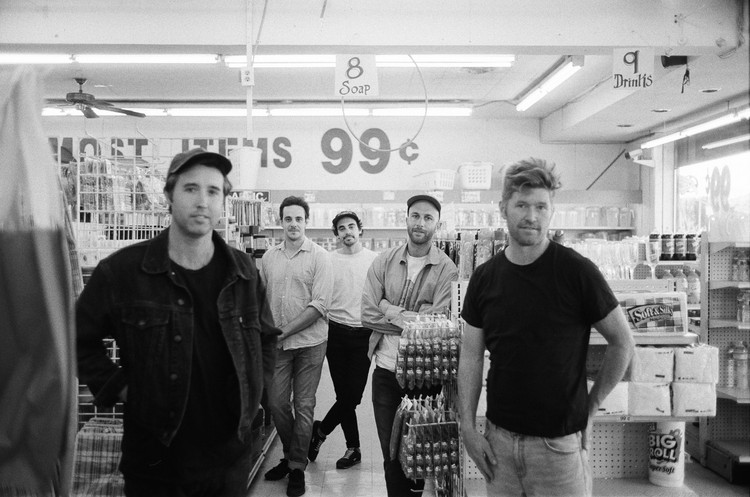Music > Interviews
Joe White of Rolling Blackouts C.F.
30/05/19

We caught up with Joe White of the Melbourne based band Rolling Blackouts Coastal Fever, whilst they tour the US. They are due to play Latitude on 21st July
Firstly- Does being an Australian band put a unique perspective on the music industry?
I guess I don’t know for sure, I only know my perspective. I do think that the way we create music might be influenced by the distance we are from everything. It’s not so much about like playing for the industry, you just sorta make music and play live shows in your home town. Really the way you start out is just trying to make it in your home town. The prospect of taking it overseas doesn’t really occur to you- it certainly didn’t occur to us until SubPop got involved.
You’re all from Melbourne? What was the local scene like- was it vibrant?
It’s very vibrant, yeah. It’s really diverse, and there’s a very strong community. There’s two radio stations Triple R and PBS that play a lot of local music, and really sort of- legitimatise the whole scene. There’s lots of music venues, music on every night. Every second person you speak to is in a band. It’s cool like that, the really good stuff people get excited about, it gets played on the radio. It’s definitely a vibrant scene and has been for a long time now. Before, what people refer to as the ‘melbourne scene’ started getting a lot of attention overseas it was still going strong.
Do you have fun touring overseas?
I love travelling, it’s a great way to see the world. Like I’m currently stood on the corner of 6th Avenue- Avenue of the Americas in Manhattan and it’s awesome just watching the world go by. We make it fun, if it wasn’t fun I can’t really imagine it.
What’s your favourite continent that you’ve done shows in?
I think I liked Europe. I liked the history of it, and the way bands are treated over there. It’s really encouraging, and it’s beautiful as well. As far as travelling goes, to witness another world and culture- you’re in a new country every day, it’s really exciting.
I know Europe, in particular Mainland Europe has some really weird venues, do you have any that really stand-out for you?
Yeah, there’s definitely some interesting ones. I remember, somewhere in Germany- maybe it was Munich? We played in an old sewer I think, like a drain that used to run to the river or something. It’s all blocked off now. It was like two stories underground. It was this circular room; the fire escape was behind the stage– you had to go through the stage to the fire escape. So, we had to also keep the stage free of any instruments. It was all really strange but was still a really fun night.

What was the first song you learnt to play?
Good question. I think it might’ve been, very early on, Blister in the Sun by Violent Femmes.
What made you pick-up the guitar, then?
I don’t know exactly. It was there, and then I just played it every day. There’s no reason, something must’ve attracted me, but I think it was just the idea of making tunes. I quickly started making up my own stuff, rather than learning other songs. I never had lessons or anything, I just taught myself. So, I just played around and sat on the couch for hours, watching cricket and playing guitar.
You said you started writing from quite an early age, were there any early musical influences?
Very early on, yeah I guess like the guitar style of Jeff Buckley was a big one, there was a record I used to listen to called Live at Sin-é. I think it was recorded at a little café in New York somewhere and he was just really expressive with what he played. That was certainly an influence. But I also listened to a lot of punk rock, a lot of pop-punk stuff that was a lot of power chords. I don’t think I wanted to play that though.
Do you have any method when you’re writing?
It’s different with every song. Like sometimes I get an idea from a rhythm or a drumbeat that I work around. Other times yeah I’ll learn how to play another song, and it’ll introduce a chord to me that I haven’t played before, or that I’ve sort of forgotten about and I’ll just sort of start working around that. Basically, I don’t have a method it just kinda happens.
What about when you’re writing with the band?
Lately we’ve been sort of bringing ideas to the rehearsal without fleshing them out too much. So just jamming on songs for like half an hour and working out what is good and what isn’t good. Essentially expanding a song and then condensing it down.
Is it a collective effort when writing?
Yeah definitely, we all improvise from that very first moment. The parts are often exploded out of that and condensed into a 3-4minute pop song essentially. So yeah definitely collaborative.

The cover art on your releases are all really nice. The French Press one it fantastic, there’s something slightly Edward Hopper about it, and the one for Hopes Down has a really cinematic feel. Did the band have much involvement in the curation of the cover art?
Yeah, we had a lot of involvement. Our bass player Joe Russo does all of the layouts and all the graphic design, he loves a good layout. Those two have just been photographs that we’ve loved and wanted to put on the front, basically. The first one, the French press one – our friend, Max Finch was in Japan and he found that frame of that shot and he just loved it. Then all of a sudden, these two people walked up onto the elevator doing the same thing at the same time. It just created this really evocative scene. So yeah, we basically just use photographs that we love, we just go for a kind of classic album cover style with photos that we love.
What are your plans for the future? Do you have any, or are you just going to kind of see how it goes?
Well we’re going to make another record, that’s the plan. But long-term we don’t have a lot of ambitious take-over-the-world ideas. Just gonna make another record, and keep challenging ourselves, I think. Try and keep doing what we’re doing because we like it, just keep coming up with ways to make it good and interesting.
If you hadn’t started Rolling Blackouts Coastal Fever what would you have done?
Maybe played cricket for Australia? Who knows really, I’d probably still be making music!
You described the album as an album of hope. What makes you hopeful?
Well in relation to that album, that was about the big grand shitstorm that was 2016 and whatever came before that, and some of what came after it. The hope lies within humans and their relationships and the way that individuals can be good to each other. You’ve got to understand the world on a big enormous scale, and you’ve also gotta understand how small you really are. You’re standing on the edge of it, and it’s all so overwhelming and massive but you’re just hanging onto the person next to you- and that’s where you get the hope from.
Words by Callum